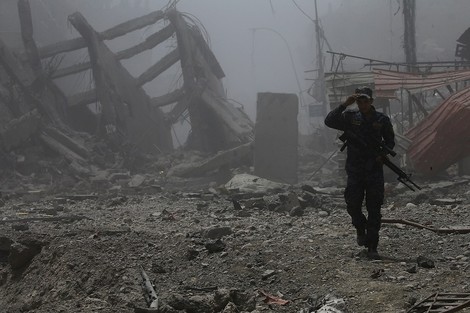Your podcast discovery platform
Curious minds select the most fascinating podcasts from around the world. Discover hand-piqd audio recommendations on your favorite topics.

piqer for: Technology and society Global finds Globalization and politics
Emran Feroz is an Afghan-Austrian journalist currently based in Stuttgart, Germany. He is regularly writing from Afghanistan, often focusing on the Middle East, Central Asia, drone warfare, refugee policies and human rights. Emran is writing in both German and English. His work has already appeared in international media outlets such as Al Jazeera, The Intercept, Alternet, The Atlantic or the New York Times and in various German and Austrian news papers and magazines.
Why Daesh 2.0 Might Emerge Soon
A must-read feature from Mosul that clearly shows why we should choose our words wisely when we talk about the city's "liberation" from Daesh ("IS").
Yes, it is true that Daesh is no more in the Iraqi city. But something like it might appear again very soon, and the reasons are similar like the ones that created the original one.
The report describes the bloody war crimes of the Iraqi military in much details. They are so cruel and disturbing that, in fact, you cannot see any difference from the crimes of Daesh.
"We killed them all. Daesh, men, women and children. We killed everyone," one soldier said.
But who are "all"? Mainly, they were innocent Sunni men, women and children. The oppression of Iraq's Sunni minority was one of the main reasons why Daesh emerged.
In this very moment, Mosul is a dystopian city, full with corpses. There are also many small bodies. Bodies of children who have been slaughtered brutally.
"There is no law here now. Every day, I see we are doing the same thing as Daesh. People went down to the river to get water because they were dying of thirst and we killed them," a major of the Iraqi army said.
In Mosul, death is everywhere.
